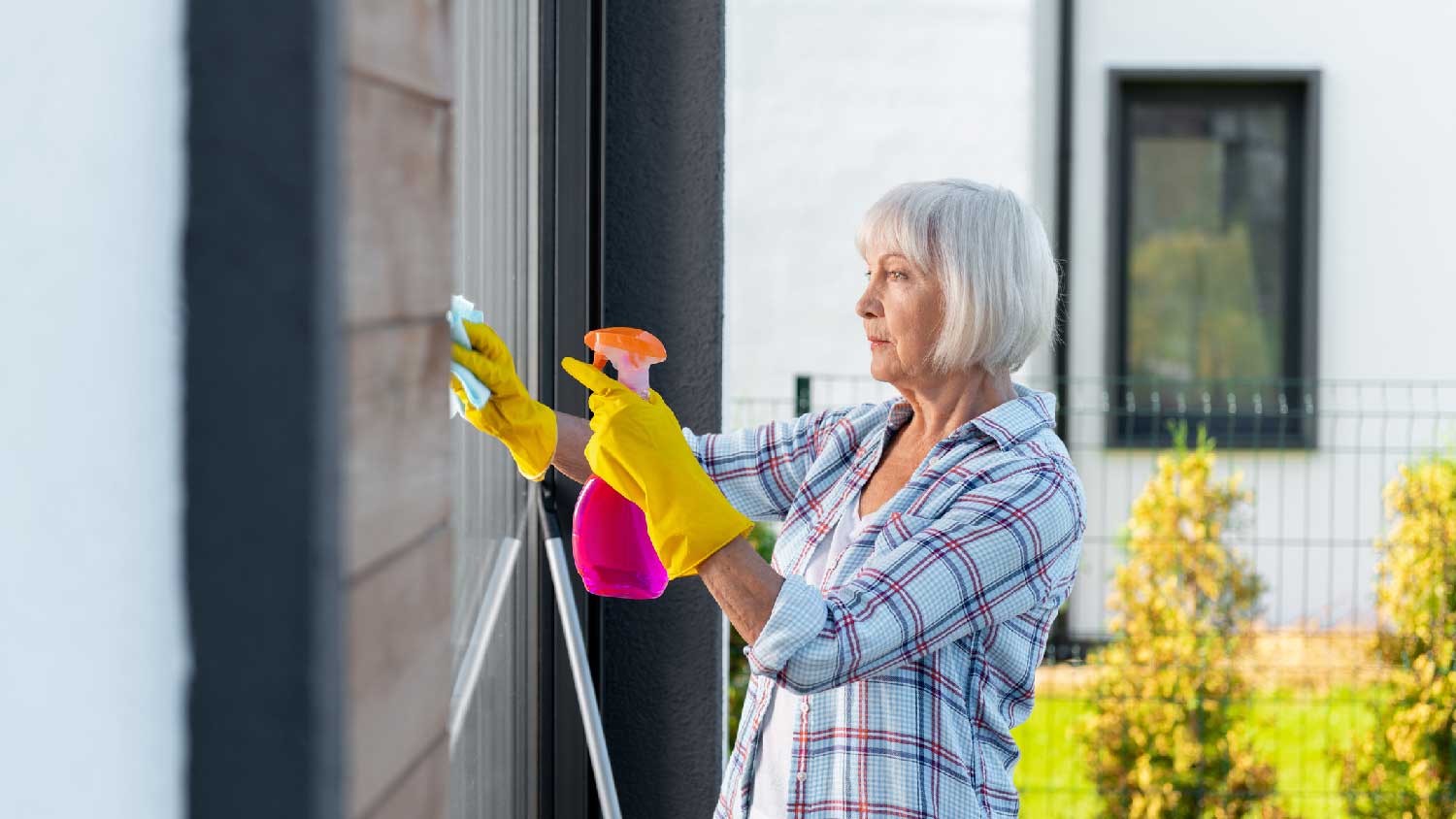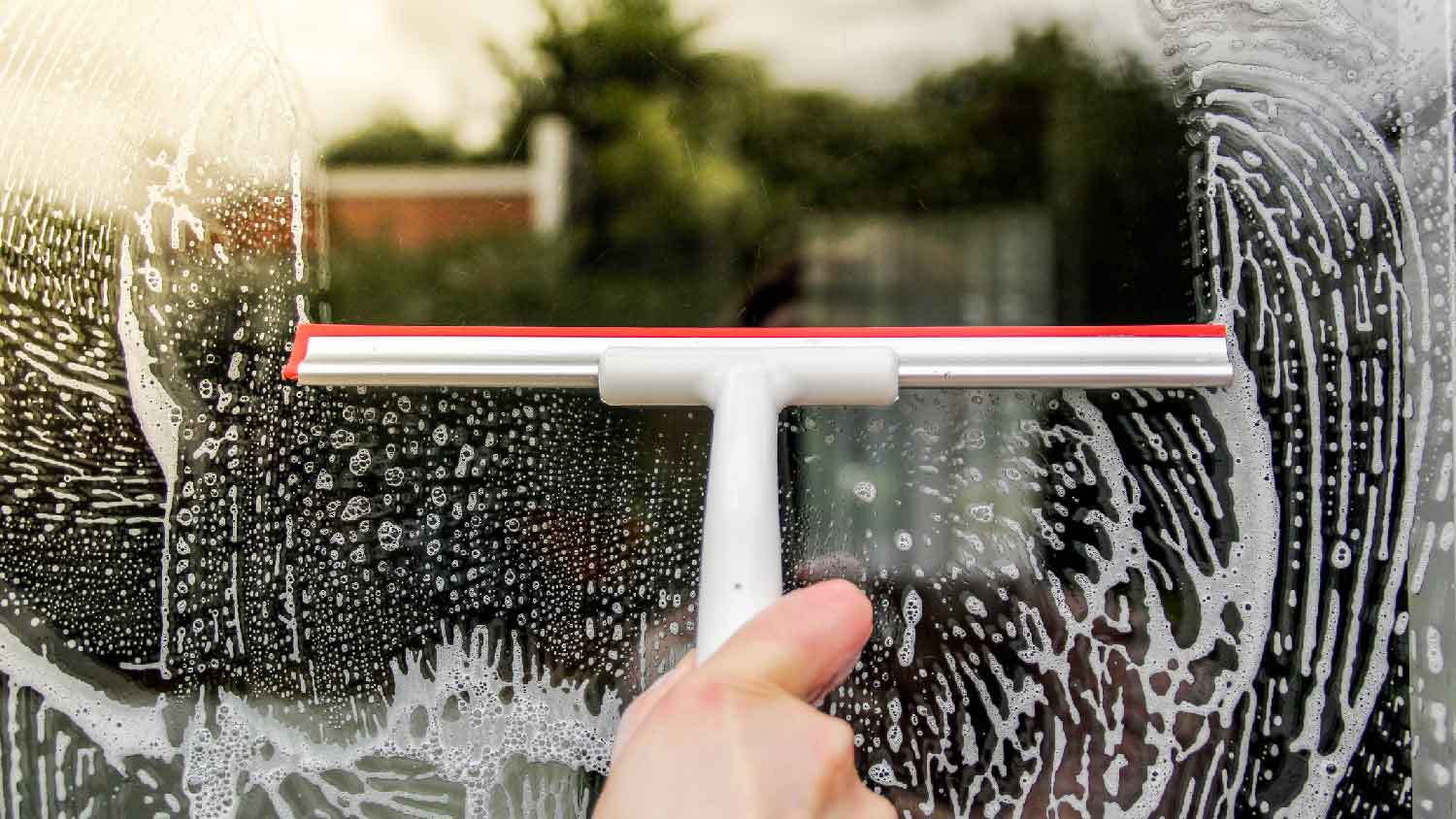
Cleanout cost may be one of your first thoughts when left in charge of an estate. We walk through factors to expect, the professional estate cleanout services cost, and ways to save.
Take the easy way out to get rid of hard water stains


Being a homeowner isn’t always easy, especially when you’re left to deal with hard water stains on glass windows. When water evaporates, it can leave behind minerals like magnesium and calcium that cover your windows in a chalky, white residue. You could install a water softener for your home’s interior, but your exterior windows are left to the whims of the environment. Clean off your windows and brighten up your home with seven fixes for removing hard water stains.
As a homeowner, you’ll find that forgetting to stock—or restock—your house with vinegar can be a mistake. Vinegar is found in cooking aisles, but its versatility is what makes it a staple household product. You’re likely to use it in recipes that involve poaching eggs, cooking rice, and creating sauces or dressings. Beyond its use for cooking, it’s best to keep a gallon or two on hand for cleaning. Because of its acidic properties, vinegar is an ideal cleaning product that removes oils, stains, dirt, and bacteria.
To remove newer hard water stains on the glass, mix equal parts white distilled vinegar and warm water into a spray bottle. Spray the solution on any hard water stains on your exterior windows. After letting the solution sit for a few minutes, wipe the windows with a gentle cloth.
White distilled vinegar is also effective for removing hard water stains on other common household surfaces, especially those you’d find in the bathroom. The solution can clean stainless steel hard water stains and stubborn stains on toilets.

If you’re out of white distilled vinegar, lemon juice is a suitable replacement. Lemons have high amounts of acid, specifically citric acid, and that’s what makes lemons great for killing bacteria. The oils that come from lemon rinds can cut through stains and remove them. That’s what makes lemon juice particularly useful for removing hard water stains from exterior windows.
Replace the vinegar from the first solution with lemon juice. Spray the diluted lemon juice on your windows and let the solution sit for a few minutes before wiping the window clean.
Five out of five dentists are likely to recommend toothpaste for its ability to remove dental plaque and reverse stains. Toothpaste is a mildly abrasive product that you use for brushing your teeth, and it can double as a stain remover for teeth, walls, and even hard water stains on your windows. For spot correcting, apply a dot of white, non-gel toothpaste and a small amount of water to a cloth. Gently spread it onto the stain and let it sit for up to 10 minutes. Wipe it clean with a wet towel or sponge and let the glass dry.
Most rubbing alcohols are composed mainly of isopropyl alcohol—a natural spot cleaner that can work on surfaces that are resilient to soaps. Where soap fails, rubbing alcohol works to remove problematic areas like hard water stains. Using a soft cloth, apply a mixture that is equal parts rubbing alcohol and water on new, mild stains. Essentially, the second you notice a hard water stain on your exterior windows, break out the rubbing alcohol. Don’t forget to wipe the window dry.
Vinegar, lemon juice, and rubbing alcohol are removers for mild stains. For the tough hard water stains that you’ve let sit on your windows for far too long, you’ll need something more abrasive. Insert baking soda. It’s hard to imagine baking soda as abrasive, especially when compared to the citric acid in lemons and the overall composition of rubbing alcohol. However, baking soda is abrasive because it’s almost like using fine sand as a cleaner. It has the potential to damage surfaces and discolor metals. Because it is abrasive, it works especially well for targeting and removing hard water stains from glass.
Create a paste by combining baking soda and a small amount of warm water. Use a cloth to gently buff the paste into the stains until they disappear.

To skip past the mini DIY project of creating your own hard water stain remover, you can easily buy one. Some products do more than remove stains. They go above and beyond to repel water and prevent future stains from developing. Each product differs, so be sure to follow the manufacturer's instructions.
If you want to take the extra step to protect the inside of your home from hard water stains and damage, you may want to take a look at how water softeners work and how they can prevent stains from appearing on other household surfaces.
There isn’t one hard water stain removal remedy to fix all problems. It may require multiple methods, a bit of elbow grease, and a professional touch. You may consider hiring a local window cleaning company to handle stubborn and hard-to-reach stains, especially those on any second-floor exterior windows. On average, homeowners can expect to spend around $219 for the cost of window cleaning services, but the final cost varies based on how many windows they have, their size, and the level of work required to clean them.
From average costs to expert advice, get all the answers you need to get your job done.

Cleanout cost may be one of your first thoughts when left in charge of an estate. We walk through factors to expect, the professional estate cleanout services cost, and ways to save.

Mattress cleaning cost depends on the number of mattresses being cleaned and the size of each. Use this guide to better understand mattress cleaning prices.

Hiring a house cleaner frees up your schedule and keeps your home spotless. The cost to hire a house cleaner depends on the size of your house, your schedule, and who you hire. Use this guide to understand typical house cleaning prices better.

A clean and organized garage allows you to do more of the activities you love. Follow these expert tips for how to organize and clean your garage.

Figuring out how to clean stainless steel sink hard water stains doesn’t have to feel like playing connect-the-dots. Here are five easy ways—and even more tips.

Hiring a house cleaner is a great fit for many. It can be the best way for busy people to have a clean home without giving up their free time. Here are some key things to help you decide whether hiring a house cleaner is worth your hard-earned money.